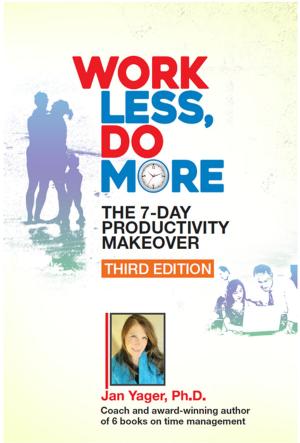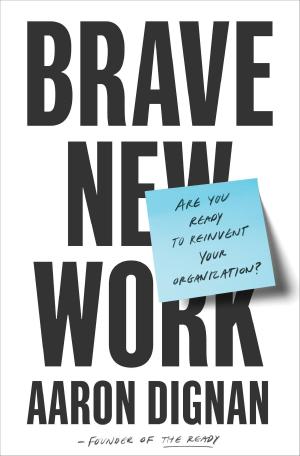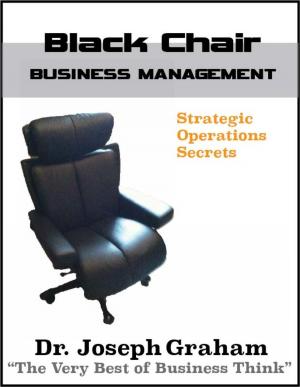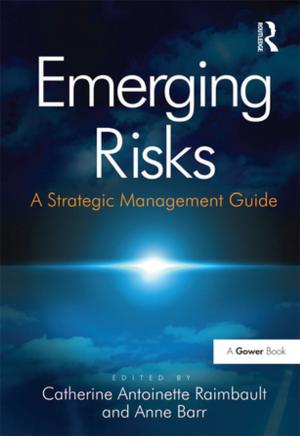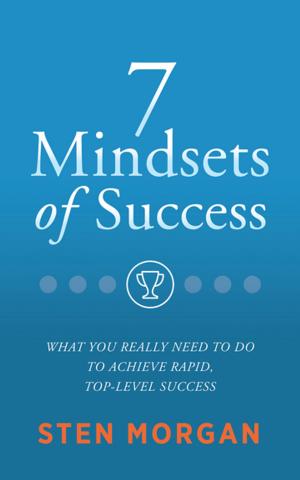The Lost Art of Problem Solving: How to Enhance Your Career by Becoming Absolutely Essential to Any Employer
Business & Finance, Career Planning & Job Hunting, Resumes, Management & Leadership, Management| Author: | Edward J. Murphy | ISBN: | 9781310827860 |
| Publisher: | Edward J. Murphy | Publication: | May 12, 2015 |
| Imprint: | Smashwords Edition | Language: | English |
| Author: | Edward J. Murphy |
| ISBN: | 9781310827860 |
| Publisher: | Edward J. Murphy |
| Publication: | May 12, 2015 |
| Imprint: | Smashwords Edition |
| Language: | English |
This book is about Problem Solving & Decision Making, your ability to more easily resolve problems and make decisions with confidence, thus contributing to the accomplishment of your goals.
Becoming a better problem solver and decision maker will make you more effective tomorrow than you are today, thus increasing your value added to any employer. If your goal is to increase your income and stand out above your peers, this book is the best investment you'll ever make.
Volume 6: The Lost Art of Problem Solving, is one of several books that make up The Leader's Guide, which provides you with the best in class knowledge, wisdom, and advice on both personal and team effectiveness and contains the minimum level of fundamental knowledge, skill, and ability essential to maximize your true career potential.
Effective leaders know the value Problem Solving & Decision Making bring to their ability to consistently produce excellent results.
I wrote The Leader’s Guide to focus on the one thing you directly control and can therefore change; your effectiveness. Your effectiveness is the sum of all the skills, knowledge, abilities, and talents that you bring to your employer.
Being selected for a leadership or management position is not something you control. Others, like your leader, make those decisions.
So, how can you become more effective, which is what your leader expects, when it’s not taught anywhere in academia or in your company?
As I see it, you have two choices. You can either do nothing and hope your leader trains you, or you can take the initiative and train yourself.
The bad news is that businesses today aren’t willing to invest in training you until you’ve been with them for a considerable amount of time and have proven yourself.
Where does that leave you? You’re on your own-good luck! Which of these two choices do you directly control?
Over the past 50+ years, I’ve been searching for the answer to what makes some people more effective than others and what do effective leaders do that cause their companies to thrive and grow?
During that time, I served in the US Military (as a US Army Officer for 23 years) and in Corporate America (as an Executive Coach for 21 years).
Here, I was privileged to work with some of America’s most exceptional men and women who were real game changers, self-starters, and highly effective regardless of titles or position.
I observed that the most effective people have several things in common. They were able to influence the actions of others by the way in which they applied the 10 Core Competencies of Effectiveness including Delegating, Planning, Organizing, Communicating, Problem Solving/Decision Making, Awareness, Training, Motivating, Character, and Followership.
In a 21st-century world, the best companies, the ones who make it to the top in their industry, are thriving because their breaking all the tradition rules and stereotypes of traditional leadership. Positions, titles, and organizational charts are meaningless. So, what’s left. What remains is effectiveness; both personal and team effectiveness.
The problem today is that many businesses are still relying on traditional development practices, which are stunting the growth of many young leaders. They’re still asking the wrong questions and using the same old lame metrics to measure success, which aren’t working as expected.
Business leaders today are still asking the wrong questions. Instead of asking, “What are the qualities of great leaders?”, and trying to copy them, you should be asking, “How can I become more effective tomorrow than I am today?”
You have too much to lose by not taking a more active role in learning the critical skills needed for successful job performance.
So, if you’re looking for a better way to jump start your career, this guide will be the best investment you could ever make.
Stop wishing you were better and do something about it today!
This book is about Problem Solving & Decision Making, your ability to more easily resolve problems and make decisions with confidence, thus contributing to the accomplishment of your goals.
Becoming a better problem solver and decision maker will make you more effective tomorrow than you are today, thus increasing your value added to any employer. If your goal is to increase your income and stand out above your peers, this book is the best investment you'll ever make.
Volume 6: The Lost Art of Problem Solving, is one of several books that make up The Leader's Guide, which provides you with the best in class knowledge, wisdom, and advice on both personal and team effectiveness and contains the minimum level of fundamental knowledge, skill, and ability essential to maximize your true career potential.
Effective leaders know the value Problem Solving & Decision Making bring to their ability to consistently produce excellent results.
I wrote The Leader’s Guide to focus on the one thing you directly control and can therefore change; your effectiveness. Your effectiveness is the sum of all the skills, knowledge, abilities, and talents that you bring to your employer.
Being selected for a leadership or management position is not something you control. Others, like your leader, make those decisions.
So, how can you become more effective, which is what your leader expects, when it’s not taught anywhere in academia or in your company?
As I see it, you have two choices. You can either do nothing and hope your leader trains you, or you can take the initiative and train yourself.
The bad news is that businesses today aren’t willing to invest in training you until you’ve been with them for a considerable amount of time and have proven yourself.
Where does that leave you? You’re on your own-good luck! Which of these two choices do you directly control?
Over the past 50+ years, I’ve been searching for the answer to what makes some people more effective than others and what do effective leaders do that cause their companies to thrive and grow?
During that time, I served in the US Military (as a US Army Officer for 23 years) and in Corporate America (as an Executive Coach for 21 years).
Here, I was privileged to work with some of America’s most exceptional men and women who were real game changers, self-starters, and highly effective regardless of titles or position.
I observed that the most effective people have several things in common. They were able to influence the actions of others by the way in which they applied the 10 Core Competencies of Effectiveness including Delegating, Planning, Organizing, Communicating, Problem Solving/Decision Making, Awareness, Training, Motivating, Character, and Followership.
In a 21st-century world, the best companies, the ones who make it to the top in their industry, are thriving because their breaking all the tradition rules and stereotypes of traditional leadership. Positions, titles, and organizational charts are meaningless. So, what’s left. What remains is effectiveness; both personal and team effectiveness.
The problem today is that many businesses are still relying on traditional development practices, which are stunting the growth of many young leaders. They’re still asking the wrong questions and using the same old lame metrics to measure success, which aren’t working as expected.
Business leaders today are still asking the wrong questions. Instead of asking, “What are the qualities of great leaders?”, and trying to copy them, you should be asking, “How can I become more effective tomorrow than I am today?”
You have too much to lose by not taking a more active role in learning the critical skills needed for successful job performance.
So, if you’re looking for a better way to jump start your career, this guide will be the best investment you could ever make.
Stop wishing you were better and do something about it today!


